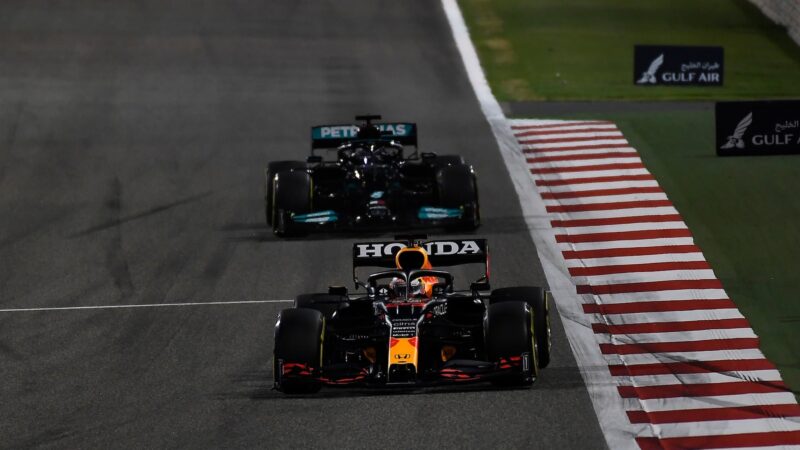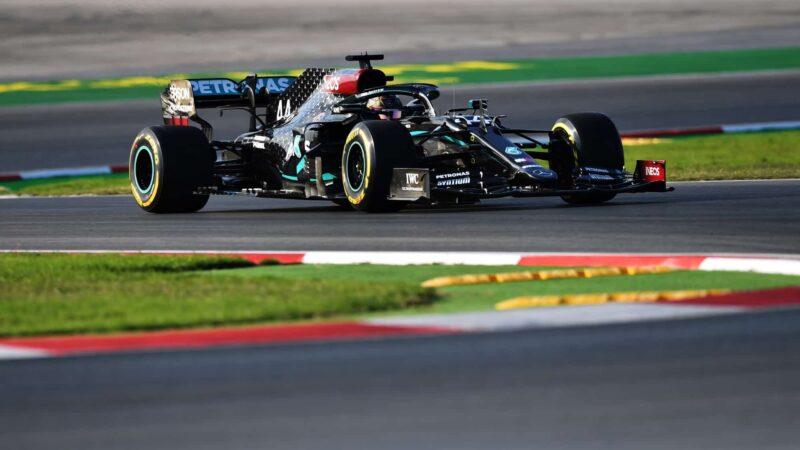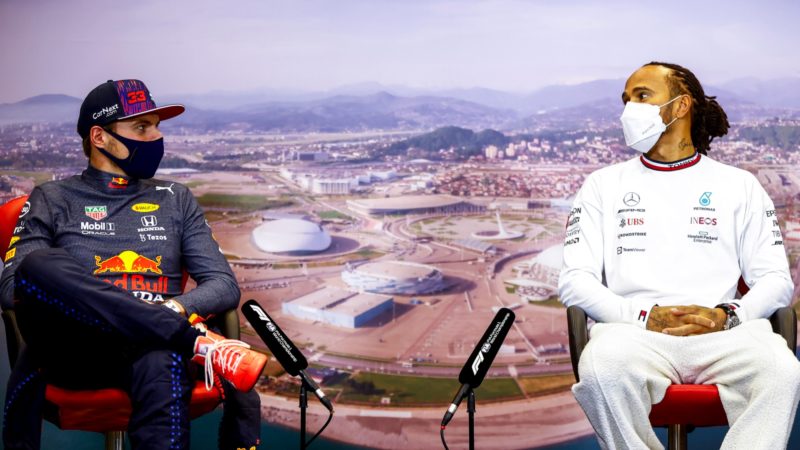Bahrain (Hamilton win)
Red Bull had a significant pace advantage (reduced on race day because of a differential problem for Verstappen) but the race was won on strategy by Mercedes.
Imola (Verstappen win)
There was a small Red Bull advantage over a single lap (either Verstappen or Perez would have been on pole but for errors on their respective Q3 laps) but the race-winning factor was how much quicker the Red Bull put heat into its tyres on a cool track.
Portugal (Hamilton win)
Very closely-matched, Merc with a possible advantage in the passing areas. But Hamilton’s tyre preserving skills definitely seemed to play a part, allowing him to be tactical in where he used the car’s performance.
Spain (Hamilton win)
Mercedes was clearly better on the tyres here, allowing it to do strategically what it did to Red Bull. Ironically the only way Verstappen might have been able to win this race was if he had not forced his way ahead into T1. Because if he’d tracked Hamilton instead, he would not have been vulnerable to the strategic pincer Mercedes used.
Monaco (Verstappen win)
No contest, the Red Bull was the fastest car, once Leclerc had crashed the Ferrari out of qualifying.

Bahrain favoured Red Bull but Hamilton secured the victory, something Verstappen hasn’t done around a track favouring Mercedes
Grand Prix Photo
Baku (Perez win)
The Red Bull had the downforce/tyre conundrum much better dealt with than the Mercedes (which got pole through a tyre-killing wing level) and comfortably had the pace to get ahead at the stops.
France (Verstappen win)
Very close but the Red Bull had the tyre performance at the end of the stints – and that proved the race-winning trait.
Styria (Verstappen win)
Red Bull no contest
Austria (Verstappen win)
Red Bull even more dominant
Britain (Hamilton win)
On a track perfectly-suited to Merc, it looked like Red Bull had a small pace advantage but it was very temperature-dependent. It was faster in the heat (as in the sprint race), but slower when it cooled (as in Friday qualifying).
Hungary (Ocon win)
Mercedes dominant on pace as Red Bull could not get the car balanced around its big rear wing and was in all sorts of understeer trouble.
Belgium (Verstappen pole/’win’)
Red Bull looked faster but we didn’t get to see it play out.
Holland (Verstappen win)
Red Bull always with around 0.3sec in hand over Mercedes.
Italy (Ricciardo win)
Merc faster on a perfectly configured track for it. But a bad start from Hamilton set up Verstappen to beat him before ‘the incident’.
Russia (Hamilton win)
PU pens for Verstappen meant we didn’t really get a clear picture, but it looked like Mercedes had a slight single lap advantage, though it was more even in the race.

Mercedes struggled in Turkey last season despite Hamilton’s victory
Ozan Kose-Pool/Getty Images
With those 15 races as a guide, how do the remaining seven stack up?
Turkey
So long as there is no repeat of last year’s super-cool and damp track conditions, this track’s layout has the makings of a very closely matched performance between the two cars. If it’s cold, the Mercedes may struggle again for tyre temperatures.
Austin
A nice mix of fast, medium and slow speed corners and a decent length back straight makes this potentially a deliciously close contest between the two cars.
Mexico
The Mercedes power unit is always at a big disadvantage in Mexico City’s super-high altitude and the Red Bull is historically dynamite here. There’s no readily apparent reason why that might change.
Brazil
A track with a very even reward for downforce and straightline speed and a reputation for unpredictable weather. Anyone’s race.
Qatar
No previous info to go on but in outline the Losail circuit has the look of Red Bull about it with not much reward for the Mercedes’ low-rake traits and the likelihood that its smooth surface may be better suited to the way the Red Bull works the front tyres.
Saudi
This has a very Mercedes look to its with super-high speeds and long flat-out stretches which will surely hurt the higher inherent drag of the Red Bull.
Abu Dhabi
Incredibly closely-balanced between the two.
So from the perspective of just two points between Hamilton and Verstappen right now, of the seven upcoming tracks four look likely to see the cars very closely-matched, with two favouring Red Bull and one Mercedes. The correlation in the previous 15 races between which was the faster car and which got the result is pretty strong with only the Bahrain, Hungary and Monza results going against performance form. In the two evenly-matched venues so far (Portugal and Silverstone), Hamilton has come out on top. Mix all that up together, mix in all sorts of random variables impossible to call in advance (including a likely Hamilton power unit change and accompanying grid drop) and the answer is obvious: no-one has a clue how it will turn out. But you kind of knew that already…



